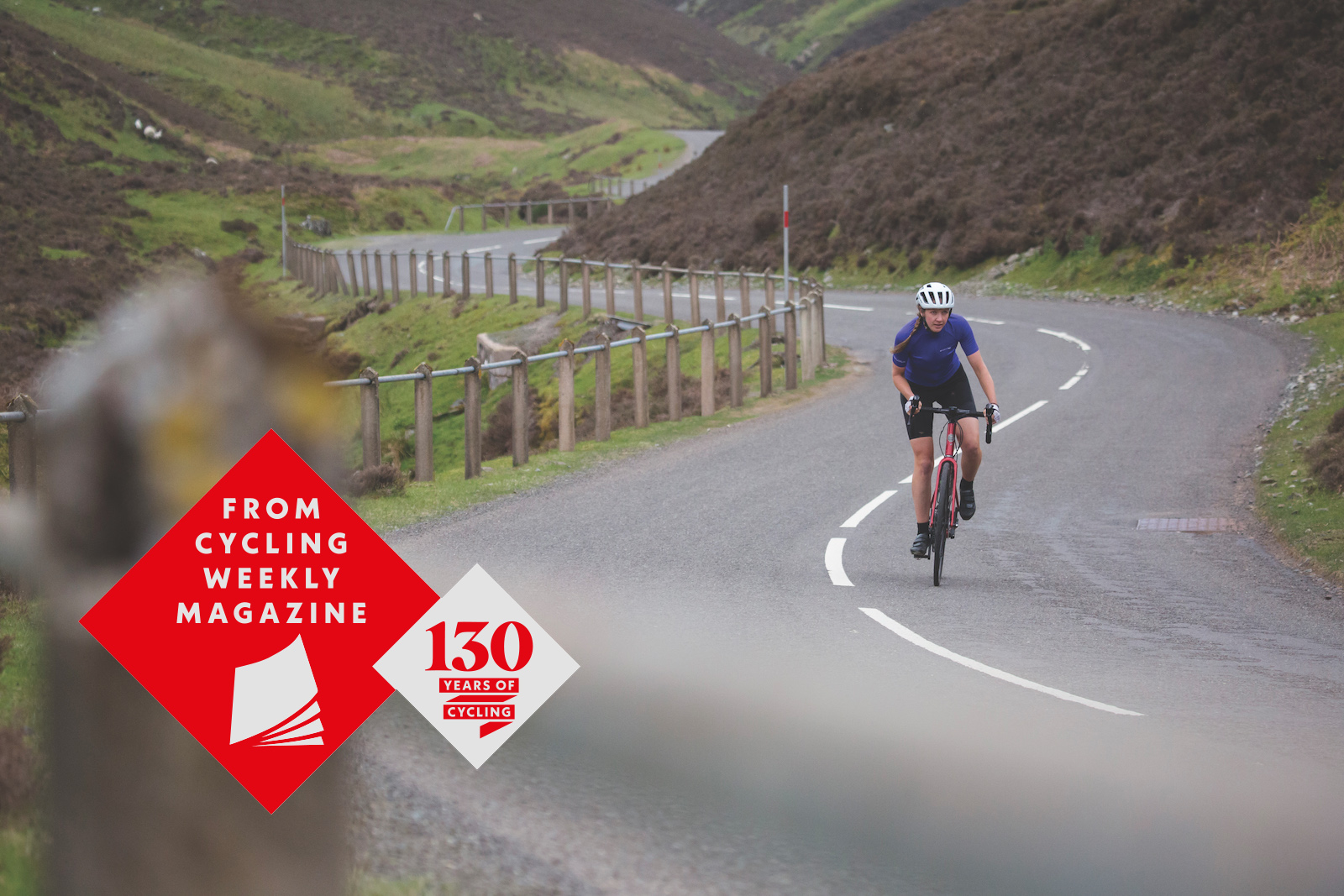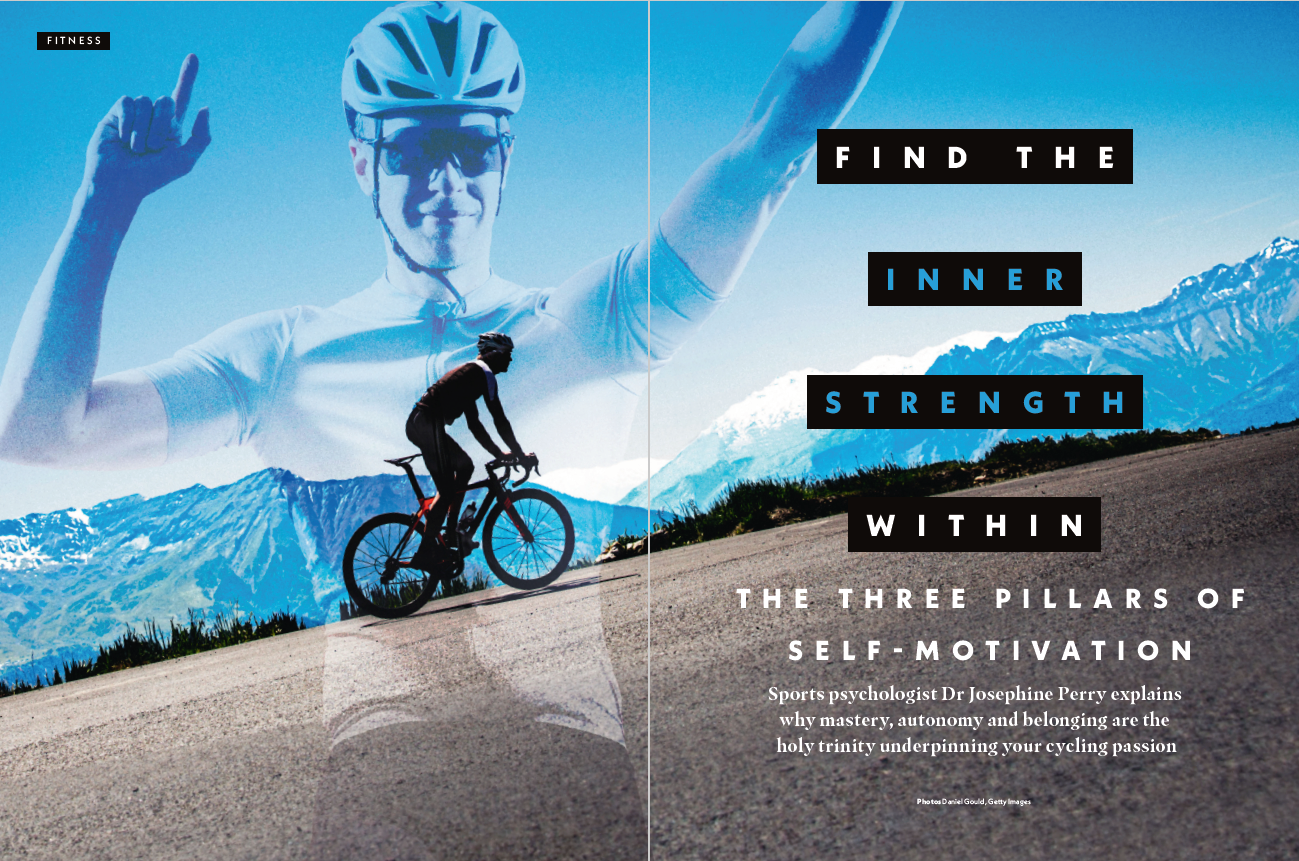The strength within - three pillars of motivation


Sports psychologist Dr Josephine Perry explains why mastery, autonomy and belonging are the holy trinity underpinning your passion for cycling.
Given you are reading Cycling Weekly, it’s fair to assume a few things about you: you’re rarely happier than when riding a bike, your favourite bike-buying equation is N+1, and much of your daydreaming involves sunny days, smooth roads and coffee stops.
When your motivation goes AWOL, however, you feel lost and unhappy and in desperate need of a kick up the bum to get you back on the saddle – and that’s what this feature is about: how to stay motivated or, if you do lose your mojo, how to get it back.
>>>> Subscribe to Cycling Weekly and never miss our fitness features
Motivational researchers have identified, in theoretical terms, that above-cited ‘kick up the bum’; they call it developing your self-determination. The theory suggests that, to maintain self-determined motivation – the type that gets you out of the door on even the toughest days – you need three pillars in place: 1. mastery over what you are doing; 2. autonomy to do it your own way; and 3. a sense of belonging to your sporting community. Missing just one of these pillars may see you struggle to get on the bike or keep riding to your full enjoyment or potential.
To take the last pillar first, let’s home in on belonging. To feel properly motivated, we need to feel connected to our social surroundings and cared for by the people in them. Social connection is a core human need whose absence harms our physical and mental health and limits opportunities to succeed.
This is one reason why the last year has been so tough; our usual external motivators – group rides, races and championships – disappeared and we were left alone with our bikes. We were physically distanced from our club-mates, banned from riding in groups, races and sportives.
The latest race content, interviews, features, reviews and expert buying guides, direct to your inbox!

Many found going online saved them. Even small social interactions like receiving a ‘Ride On’ thumbs-up on Zwift or chatting in a WhatsApp or Facebook group provided some sense of community. Connections with fellow riders help us feel embedded in the cycling community, so develop that sense of being part of something bigger.
“[Connections] act as a protective factor against stress,” says Hugh Gilmore, performance psychologist to Team GB athletes, “and it is not necessarily the quantity but the quality of social connection that counts. Humans use social connections to vent frustrations and also to get perspective on their own challenges.”
Making contact with others is like a safety valve for your mental wellbeing.
You can read the full article in the April 22 issue of Cycling Weekly magazine. You can order the issue online if you're not going out, or you can subscribe to get it delivered each week save on the cover price and enjoy fitness features written by experts from around the world.
Dr Josephine Perry is a Chartered Sport and Exercise Psychologist whose purpose is to help people discover the metrics which matter most to them so they are able to accomplish more than they had previously believed possible. She integrates expertise in sport psychology and communications to support athletes, stage performers and business leaders to develop the approaches, mental skills and strategies which will help them achieve their ambitions. Josephine has written five books including Performing Under Pressure, The 10 Pillars of Success and I Can: The Teenage Athlete’s Guide to Mental Fitness. For Cycling Weekly she tends to write about the psychological side of training and racing and how to manage mental health issues which may prevent brilliant performance. At last count she owned eight bikes and so is a passionate advocate of the idea that the ideal number of bikes to own is N+1.
